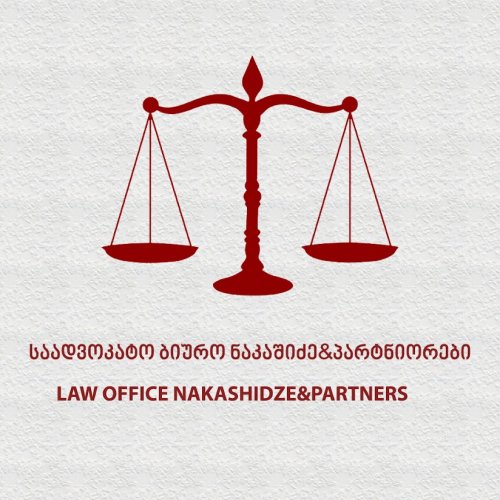Best Native People Lawyers in Tbilisi
Share your needs with us, get contacted by law firms.
Free. Takes 2 min.
List of the best lawyers in Tbilisi, Georgia
About Native People Law in Tbilisi, Georgia
The Native law in Tbilisi primarily concerns the rights and protections of the indigenous ethnic communities in Georgia, such as Armenians, Azeris, Abkhazians, and Ossetians. These laws encompass various aspects including land rights, language protection, cultural preservation, and community development.
Why You May Need a Lawyer
There are several instances where you may need legal advice concerning indigenous people's rights. These situations can include land disputes, cultural heritage preservation issues, discrimination cases, and cases related to linguistic rights. A lawyer can provide you with trustworthy advice and represent you in formal proceedings, safeguarding your rights.
Local Laws Overview
The Georgian constitution recognizes the rights and freedoms of all people, including the native ethnic groups. Significant local laws relate to the preservation of cultural heritage, linguistic rights, land rights, equal opportunity, and anti-discrimination. Under these laws, native ethnic groups have the right to maintain their cultures and languages and are entitled to the same rights and freedom as other residents of Georgia.
Frequently Asked Questions
What are the rights of native ethnic groups under the Georgian constitution?
Under the Georgian constitution, native ethnic communities have the right to preserve their languages, culture, and participate equally in society and politics without any discrimination.
Are there specific laws protecting the land rights of native ethnic groups?
Yes, specific laws do protect the land rights of native ethnic groups, ensuring that their ancestral lands are preserved and protected against unfair acquisition or use.
Does Georgia have laws against discrimination targeting local native people?
Yes. Georgian law strictly prohibits any form of discrimination based on ethnicity, including the native ethnic groups, guaranteeing equal rights and protection under the law.
What kind of legal help can one receive concerning indigenous people's rights?
Legal help can cover advice, representation, negotiation, and dispute resolution concerning issues like land rights, cultural preservation, discrimination, and others related to indigenous people's rights.
Can a foreigner buy land belonging to native people in Tbilisi, Georgia?
The land rights of native people are protected by law. Any acquisition needs to follow due legal process, and in many cases, cross-check with local native bodies. Therefore, it would be best to consult a lawyer for accurate information.
Additional Resources
You could visit the Georgian Human Rights Department, the Ministry of Foreign Affairs, and the Regional Council of Ethical Minority for additional resources. Also, various non-government organizations, such as the Tbilisi-based Caucasus Research Resource Centers, offer exceptional insights into native people's rights and related legal aspects.
Next Steps
If you need legal assistance related to native people's rights in Tbilisi, Georgia, it's important to consult a reliable lawyer or a law firm that's experienced in this field. Gather relevant documents and be precise about your case details for efficient and effective legal help.
Lawzana helps you find the best lawyers and law firms in Tbilisi through a curated and pre-screened list of qualified legal professionals. Our platform offers rankings and detailed profiles of attorneys and law firms, allowing you to compare based on practice areas, including Native People, experience, and client feedback.
Each profile includes a description of the firm's areas of practice, client reviews, team members and partners, year of establishment, spoken languages, office locations, contact information, social media presence, and any published articles or resources. Most firms on our platform speak English and are experienced in both local and international legal matters.
Get a quote from top-rated law firms in Tbilisi, Georgia — quickly, securely, and without unnecessary hassle.
Disclaimer:
The information provided on this page is for general informational purposes only and does not constitute legal advice. While we strive to ensure the accuracy and relevance of the content, legal information may change over time, and interpretations of the law can vary. You should always consult with a qualified legal professional for advice specific to your situation.
We disclaim all liability for actions taken or not taken based on the content of this page. If you believe any information is incorrect or outdated, please contact us, and we will review and update it where appropriate.










